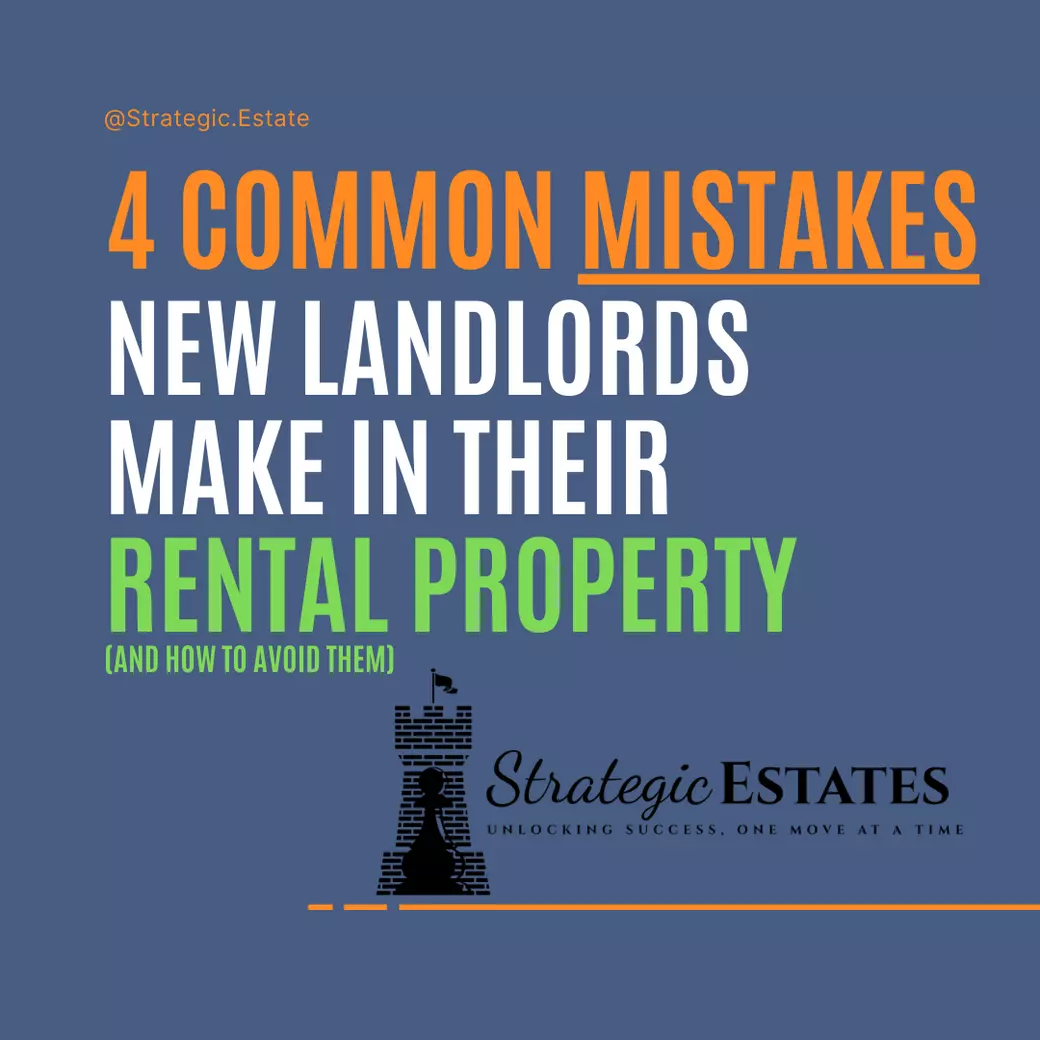7 Common Mistakes New Landlords Make (and How to Avoid Them)

Becoming a landlord can be a great way to build wealth, but it’s easy to make costly mistakes if you’re just starting out. Learning from others' experiences can help you avoid common pitfalls, protect your investment, and ensure a smoother experience for both you and your tenants. Below are seven mistakes new landlords often make—and tips on how to avoid them.
For personalized advice, book a Free Consultation with us today!
1. Skipping Tenant Screening
- The Problem: In an effort to fill vacancies quickly, new landlords might skip thorough tenant screening. This can lead to unreliable tenants who miss payments or cause damage.
- How to Avoid It: Always conduct a comprehensive screening process, including background checks, credit checks, and rental history verification. Quality tenants are worth the wait.
- Pro Tip: Use a tenant screening service to streamline the process and ensure you’re covering all the essentials.
2. Neglecting Regular Inspections
- The Problem: New landlords often overlook the importance of regular property inspections, which can lead to unnoticed damage or maintenance issues that grow worse over time.
- How to Avoid It: Schedule inspections at least twice a year and include a clause in the lease that allows for these periodic checks. Regular inspections help you catch small problems before they become big (and costly) ones.
- Pro Tip: Create a checklist for each inspection to ensure you're covering key areas, like plumbing, HVAC systems, and structural elements.
3. Underestimating Maintenance Costs
- The Problem: Many new landlords assume that rent payments will cover all expenses, only to be surprised by the cost of repairs and routine maintenance.
- How to Avoid It: Budget for maintenance costs by setting aside 1-2% of the property’s value each year. This fund can help cover unexpected expenses and keep the property in good shape.
- Pro Tip: Build a list of reliable contractors and handymen to have on call, so you’re not scrambling when issues arise.
4. Not Setting Clear Rental Policies
- The Problem: Failing to establish clear policies around rent collection, pets, or property access can lead to misunderstandings and disputes with tenants.
- How to Avoid It: Include detailed rental policies in the lease agreement, and discuss them with tenants before they move in. Clear communication helps set expectations and ensures a positive landlord-tenant relationship.
- Pro Tip: Consider adding a “house rules” document to your lease package. This can cover things like noise levels, guest policies, and maintenance requests.
5. Handling All Maintenance Personally
- The Problem: New landlords sometimes try to save money by doing all repairs themselves. However, DIY fixes can lead to bigger problems if you lack experience, and tenants might get frustrated by delays.
- How to Avoid It: Focus on tasks that match your skill level, and hire professionals for more complex work. Timely and professional repairs keep tenants happy and prevent small issues from escalating.
- Pro Tip: Prioritize responsiveness. Tenants will appreciate quick action, which can also prevent problems from worsening.
6. Setting Rent Without Market Research
- The Problem: New landlords sometimes set rent based on personal expectations rather than current market trends, leading to either missed income or extended vacancies.
- How to Avoid It: Research comparable properties in your area to set a competitive rental price. Consider factors like property condition, location, and amenities when determining the rent.
- Pro Tip: Use rental pricing tools or consult with a local real estate professional to get an accurate sense of what your property is worth.
7. Failing to Treat It as a Business
- The Problem: Some first-time landlords treat rental property as a side gig, overlooking the need for solid documentation, accounting, and business processes.
- How to Avoid It: Keep detailed records, use a separate bank account for rental income and expenses, and follow up on paperwork consistently. Approach your rental property like a business to maximize efficiency and profitability.
- Pro Tip: Invest in property management software to help you track income, expenses, and maintenance requests all in one place.
Call to Action
Starting out as a landlord can feel overwhelming, but avoiding these common mistakes will set you on the right path. If you’re looking for tailored advice, book a Free Consultation with us today. We can help you navigate the challenges of property management and maximize your rental income with confidence!
Additional Resources
Categories
Recent Posts










